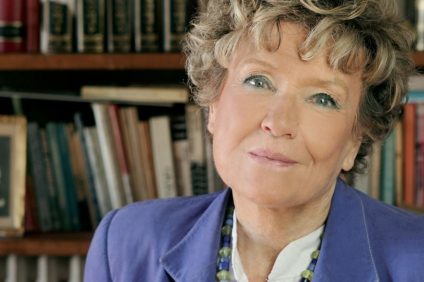Today I have the pleasure of having at my side and interviewing Dr. Saverio Stranges Head of Epidemiology and Biostatistics at Western University - Canada.
What was the path you followed to get to play such an important role?
I have graduated in Medicine e specialized in Public Health at the University of Naples Federico II, then I pursued a Doctorate courses that I have completed in the United States at the State University of New York in Buffalo where my academic career also began. I then moved to Europe for a position in Associate Professor at the University of Warwick in England, where I have been for about nine years and where I have also filmed theclinical activity in the field of Preventive Cardiology which is also my field of research. I then started a more managerial career, because I moved for two years to Luxembourg where I have been Scientific Director of the Population Health Department of the main research institution of Luxembourg. Later I moved back overseas, to Canada, at Western University to fill the role of Head of the Department of Epidemiology within a Faculty of Medicine.
My path is similar to that of many Italian researchers in the biomedical field who often go outside Italy also to enrich their professional background and to learn about other systems. However, it often happens that these periods abroad turn into decades because, I'm sorry to say, but abroad there are more professional opportunities than in Italy even if it is hoped that things can change soon.
You are a luminary, a scientist who deals with prevention. What do we need to do to live longer and healthier?
This has been the mission of my academic career. As a doctor I soon realized that it is important to treat diseases with pharmacological and surgical therapies but, in my opinion, even more important is to try to understand what the causes of the diseases are, therefore, what are the possibilities from a preventive point of view. , for public health interventions that can prevent the development of pathology. I deal in particular with chronic diseases, therefore cardiovascular diseases, diabetes, cancer, neurodegenerative diseases, which are diseases on the rise in some societies, such as the Italian one and affect more and more adults whose number is gradually increasing. I soon realized that I was much more interested in the study of risk factors which not only include individual medical factors, such as cholesterol, blood sugar or arterial hypertension and lifestyles in general, but also social environment and the environmental context which clearly play a preponderant role, often even more important than individual factors. This factor is often neglected even in the context of financing because we always focus on the epiphenomena of the problem and often neglect the deepest roots, even in the field of health. For me it has always been much more interesting to understand the role of the socio-environmental context than to focus exclusively on individual factors.
What are your plans for the immediate future?
I am very busy in my current role. I also travel quite frequently to different places around the world, we have master's and collaboration programs in Africa, the Asian continent, Europe and South America.
My dream, my ambition, would be to be able give something back to the territory and the community where I grew up and I am referring above all to southern Italy, to try to establish collaborations with local universities and also to evaluate the possibility of creating summer schools, summer schools, in the context of research on healthy aging or longevity. In some southern regions, Calabria, Campania and Sardinia, there are clusters of longevity, we have very high percentages of over one hundred year olds, obviously beyond the speeches of lifestyles, in particular nutrition, the Mediterranean diet, the factor common that binds these communities is the social fabric which often protects older people from isolation, for example dai mental health problems that can then accelerate for example, the course of chronic diseases such as cardiovascular disease but also neurodegenerative disease and I am referring in particular to dementia which is increasingly common in societies where the proportion of elderly people is increasing.
You are southern, you are Italian, what do you bring of your Italian spirit around the world
Thank you for this question. There are, I don't know if it's a good or a bad thing, thousands of Italian researchers who work in foreign universities. As a man of the South, I can say that we have the ability to adapt to different contexts. I have lived the last 16 years in five different countries and it is not always easy to adapt to new cultures, to new systems, but our flexibility as southern men accustomed to facing difficult problems gives us that mental elasticity that allows us to adapt and also to make us love, esteem and respect in foreign contexts.
I also carry with me the historical and cultural heritage of a country that has also contributed to the development in my field, in medicine. I can say that in general there is a lot of appreciation for Italian, especially in the context of research in foreign contexts. I carry with me the ability to socialize and interact with my colleagues because, in my role as head of the department, I try to be inclusive, but also to establish collaborative relationships with my colleagues and this is often appreciated beyond the competences professional.
Interview with Saverio Stranges (english version)
Today I have the pleasure of having by my side and interviewing Dr. Saverio Stranges, Head of Department of Epidemiology and Biostatistics at Western University - Canada.
What was the path that you followed to be able to cover such an important role?
I graduated in Medicine and specialized in Preventive / Public Health Medicine at the University of Naples Federico II, then I pursued a PhD that I completed in the United States at the State University of New York in Buffalo where my academic career began, before moving back to Europe for a position as associate professor at the University of Warwick, in England where I lived for about nine years, also resuming the clinical activity in the field of preventive cardiology which is also my research area. From England, I then started a career more focused on managerial aspects because I moved for two years in Luxembourg where I was Scientific Director of the Department of Population Health of the main research institution of Luxembourg. I then moved overseas in Canada at Western University to serve as head of Department of Epidemiology within a medical school.
We could say that my path is similar to that of many Italians, especially researchers in the biomedical field who often move out of Italy to enrich their professional experience and to learn about other systems. It often happens that these periods become decades because, I am sorry to say, there are professional opportunities that are harder to find in Italy, even though hopefully things can start to change soon in our country.
You are a luminary, a scientist who deals with prevention. What should we do to live longer and healthier?
This was the mission of my academic career because I realized that, as a doctor, it is obviously important to treat diseases with pharmacological and surgical therapies, but, in my opinion, it is even more important to try to understand what are the causes of diseases, hence, what are the possibilities from a preventive point of view for public health interventions that can prevent the development of pathologies. I deal in particular with chronic pathologies, therefore from cardiovascular diseases to diabetes also including cancer and neurodegenerative diseases that are more and more common pathologies in a society where the proportion of adult people is growing continuously. I soon realized that I was far more interested in the study of risk factors that not only include individual, medical factors, for example cholesterol, blood sugar or arterial hypertension. In fact, in these cases lifestyle in general and also the social environment clearly play a predominant role, often even more important than individual factors, because in a way they influence individual behavior. This is often a neglected area because we always focus on the epiphenomenon of the problem often ignoring the deepest roots, so for me it has always been much more interesting to understand the role of the socio-environmental context compared to focusing exclusively on individual factors.
What are your plans for the immediate future?
I am very busy in my current role. I also travel quite frequently in different parts of the world. We have master's programs and collaborations in Africa, Asia, Europe and in South America.
My dream would be to return something to the territory and the community where I grew up and I refer mainly to southern Italy, to try to establish collaborations with local universities and also to evaluate the possibility of creating summer schools, in the context of research into healthy aging or longevity, given that in some southern regions, including Calabria, Campania and Sardinia there are longevity clusters. We have percentages of very high ultra centenarians and the common factor that binds these communities, apart from the lifestyle, where nutrition plays a fundamental role, since the Mediterranean diet has always been a very relevant field of research, is the social fabric that often protects older people from isolation, for example mental health problems that can then accelerate the course of chronic diseases such as cardiovascular disease but also neurodegenerative diseases. I refer in particular to the dementia that is increasingly common in societies where the proportion of older people is increasing.
You are southern, you are Italian, what do you bring of your Italian spirit around the world?
I thank you for this question that is probably shared among many Italians. There are, I do not know if it is good or bad, thousands of Italian researchers working in foreign universities. As a man of the south, we bring that ability to adapt to different contexts. I have lived the last 16 years in five different countries and it is not always easy to adapt to new cultures and new systems, but our flexibility of southern men, also often used to face difficult problems, gives us that mental flexibility and the ability to adapt that also makes us be appreciated, esteemed, and respected in foreign contexts.
Apart from this, there is also a historical and cultural heritage of a country that has contributed to the development in my field, in medicine. I can say that in general there is much appreciation for Italy and Italians especially with regard to research in foreign contexts. I also have the ability to socialize and interact with my colleagues, because in my role as head of the department I try to be inclusive but also to establish collaborative relationships with my colleagues, and this is often appreciated beyond professional skills.




